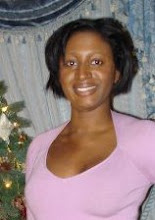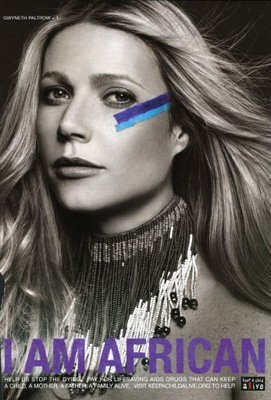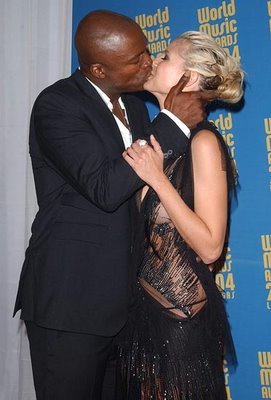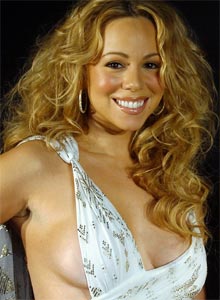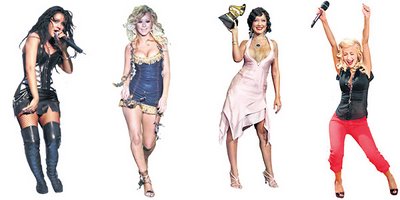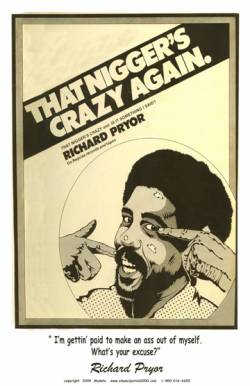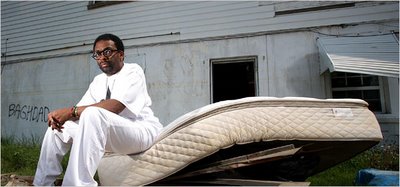 “What happened in New Orleans was a criminal act,” he said, a tragic backhanded slap to poor, black or politically insignificant people. “The levees were a Band-Aid here and a Band-Aid there. In the famous statement of Malcolm X, the chickens came home to roost. Somebody needs to go to jail”
“What happened in New Orleans was a criminal act,” he said, a tragic backhanded slap to poor, black or politically insignificant people. “The levees were a Band-Aid here and a Band-Aid there. In the famous statement of Malcolm X, the chickens came home to roost. Somebody needs to go to jail”
---Spike Lee as reported in the New York Times
My mother aclled me two weeks ago and said "Courtney, I just saw Spike Lee!" She and my ad were in New Orleans for a monthly Board meeting that my dad serves on that was around the time that Spike Lee was in New Orleans debuting his documentary, “When the Levees Broke: A Requiem in Four Acts”. Being a native Louisianaian (at least five generations deep), Katrina was beyond personal. I'm just beginning to get to the point where I can talk/write about it freely without getting emotional. All four acts of the documentary airs on HBO at 8 p.m. on Tuesday, Aug. 29, the first anniversary of Hurricane Katrina. I implore everyone to please watch. I'm curious to see how Spike handles this documentary. I've loved some of his works such as Malcolm X and Bamboozzled and had issues with others She Hate Me and She's Gotta Have It but he has always been a filmmaker that made me pay attention to him. He is frequently touted as "controversial" which I disagree with largely because it implies "untruth" or a fondness of created discord when there really isn't any there, none of which I think Spike does. In other Spike news, he's developing a drama for NBC. Details on this drama are hush hush (as is his roll with the drama) but I will definitely support.
I am also included a transcripted talk with Kasi Lemmons below. Will make interested reading if you have time. I am also going out of town (for a lot of things, most notably a family reunion) but hope to keep up with my bloggery while I'm away!
Movie Talk
Kasi LemmonsWriter-DirectorThursday, August 3, 2006; 1:00 PM
Kasi Lemmons made her feature film debut with 1997's well-received "Eve's Bayou." Now the writer-director is working on a biopic based on the life of Ralph Waldo "Petey" Greene, the former inmate who became a Washington, D.C. talk show host and activist. The film, "Talk to Me," is currently in production and stars Don Cheadle, Taraji P. Henson, Martin Sheen and Cedric the Entertainer.
Lemmons was online Thursday, Aug. 3 at 1 p.m. ET to discuss the movie and her career.
The filmmaker also directed "The Caveman's Valentine" (2001), and has a number of acting credits on her resume, including roles in Spike Lee's "School Daze," "The Silence of the Lambs" and "Fear of a Black Hat."
A transcript follows.
____________________
Washington, D.C.: I am from Georgetown/Foggy Bottom, and my family knew Petey Greene well. I know it has been 22 years since his death, but what made you do this film now? How did he come to your attention? Were you aware that the Old Georgetown/Foggy Bottom picnic was held on July 15, and T-shirts were made with his picture on the front?
Joyce May Brown
Kasi Lemmons: I wish I could have one of those T-shirt. I first became aware of Petey Greene through this project. The script was submitted for me to work on as a writer They were looking for a writer to do another draft. It was very familiar, even though I didn't know that I had heard of him when I read the script. I guess I'd heard of him someplace, but I wasn't really familiar with him as a person. I fell in love with his story, which really is not the Petey Greene story. It's a story in which Petey Greene is a character and deals with his friendship with Dewey Hughes between 1960 to 1972. It's a story about Dewey Hughes and Petey Greene and political activism through radio. But basically it's a story about friendship and that's why I was interested in it.
That being said, one of the things that really attracted me is Petey Greene's tell-it-like-it-is style. Because that's really missing today. People self-censor or are censored. That's why I related to him, he just told it like it was.
_______________________
Kasi Lemmons: The story takes place between 1966 all the way to Petey's death in 1984 but the bulk of the story takes place between 1968 and 1972.
_______________________
Chicago, Ill.: How did you get funding for the Petey Green film? Is it difficult finding money for films with a predominately black cast?
Kasi Lemmons: It's extremely difficult to get money for films with a predominantly black cast. We were independently financed by Sidney Kimmel Entertainment because a producer there, Bill Horberg, felt passionately about the story but we were extremely lucky.
_______________________
Dorchester, Mass.: I look forward to your film with the marvelous Don Cheadle. Good thoughts and best wishes on this project.
Now, for my question: How will folks outside of D.C. "get" your movie? I know that "Coach Carter" was a good movie but it was about someone most of the country was unfamiliar with and, it seemed, not very excited about. The movie had the kind of values folk drone on about but its staying power was weak. How will you combat this possibility?
Kasi Lemmons: As I've said, this is not the Petey Greene story; it's a story in which Petey Greene is a character. Basically it's a story about friendship so it's very universal. It's a story about investing your dreams in another person. It's a story about activism and politics and community and how those things intersect. And it's a story about a man who had a voice that inspired and that's very universal. It's a dynamic story because the character's (Petey Greene) is very dynamic and you don't have to be a Washingtonian to appreciate that. You don't even have to be black to appreciate. It's something that I think will reach a large audience.
_______________________
Bethesda, Md.: How did Mr. Greene's time in prison affect his later work? Did he make plans in prison and work towards them while in prison, or was what happened after prison mostly independent of all that?
Kasi Lemmons: No, what happened in prison is very important. It's in prison that he became a disk jockey. He started doing the broadcasts at Lorton and he became very good at it and he was a very popular prison DJ. So when he came out of prison he took that skill with him and expanded on it.
_______________________
Greenbelt, Md.: As a life-long Washington area resident, I'm concerned about the "look" of your film. Many of the structures and landmarks that were around during the '60s and '70s no longer exist. How will your film compensate for those losses?
Kasi Lemmons: We looked at a lot of documentary footage and matched it as best we could. It helped a lot that my production designer (Warren Allen Young) spends half of his time in D.C. and so he's very familiar with the city. He owns houses there and he's very detail-oriented, so he made sure that the places we photographed really resembled the places in D.C. in the '60s and '70s. So we filmmakers always face a challenge to make things feel authentic in movies and we try to rise to the challenge and get as much right as we can. Well because a lot of it takes place in communities that are not so monument-heavy, we chose locations that just had a community feel and reminded us of D.C. If we do our job right the audience should be completely comfortable in believing that they are actually seeing D.C. in the '60's and '70s.
_______________________
Washington, D.C.: This isn't a question but a comment. In 1975, my sister, brother-in-law and I went to a Richard Pryor, Kool and the Gang show at the Carter Baron Amphitheater in D.C. Petey Greene was in the audience and giving Richard some back talk. So, Richard put a chair on the stage and made Petey sit in it. Petey quieted down, Richard continued his show, and the audience had a big laugh, thanks to two unusual, outspoken, very crazy black men!!
Best of luck with this movie!!!
Kasi Lemmons: Thank you so much. That's a funny story.
_______________________
New York, N.Y.: "Eve's Bayou" is one of my favorite films. The cinematography and the way you captured cultural nuances was magical. Are you from Louisiana? I hope your new film can work the same magic with its story.
Kasi Lemmons: I'm not from Louisiana but I have family in Louisiana. Some of my father's family is from there. I spent a lot of time as a little kid in Tuskegee, Ala., where my grandmother lived so I'm very familiar with the Deep South. I also have spent a lot of time in New Orleans, a truly magical city that I hope and pray will recapture all of its former glory.
_______________________
Altadena, Calif.: How was the cast chosen for this movie?
Kasi Lemmons: I chose them. As a director, I chose the actors. Don Cheadle was my idea. Chiwetel Ejiofor came in and auditioned and he was spectacular. They were so great together; they had such great chemistry. We thought Martin Sheen would be a great idea to play the head of the radio station, E.G. Sonderling. He has that perfect balance of cool and conservative that we needed for the character and he's wonderful in the movie. Mike Epps and Cedric the Entertainer are also wonderful in the cast. Taraji Henson is the female lead and she's spectacular and also my husband is in the movie, Vondie Curtis Hall. It's a great cast and I am delighted to have had the opportunity to work with such fine actors.
_______________________
Oxon Hill, Md.: When will the movie be release to the public?
Kasi Lemmons: I really don't know yet. Focus Features is releasing the movie and they say they won't make a decision until after they see it edited. I'm thinking either spring or fall of '07.
_______________________
Chicago, Ill.: In the WP article you are quoted as saying as a black woman, you know black men better than they know themselves. What do you mean by that?
Kasi Lemmons: What I actually said was that was what I said in trying to get the job. It was one of the lines I used to promote myself as the director. I do believe that it's true. I think that men in general shy away from or are afraid of revealing their vulnerabilities and women who love men see them for the fabulous delicate creatures that they are and aren't so afraid of exposing their vulnerabilities.
I've often thought that good writers write more revealingly about the opposite sex, maybe because it's less personal.
_______________________
Washington, D.C.: I really enjoyed Terence Blanchard's music for "Eve's Bayou" -- will he be scoring this film as well?
Kasi Lemmons: Hopefully he will. I would like nothing better.
_______________________
Silver Spring, Md.: What role will your husband have in the movie? I must say that he never looked hotter (to me!) than he looked in "Eve's Bayou." Clearly, there's a lot of passion between you.
Kasi Lemmons: He plays Sunny Jim, one of the deejays at the station. I also think he looked hot in Eve's Bayou.
_______________________
Washington, D.C.: How was it to film in Washington? Easy or hard to do all the red tape? Were the police good to work with? How do you find old cars for a period movie? Can you see yourself shooting something else in DC in the future? I "googled" Petey Greene and came up with links to a clip from his TV show where he is talking about eating watermelon, I guess folks find that funny, without realizing his message was "be true to yourself." I look forward to your film.
Kasi Lemmons: I was very pleased to be shooting in D.C. Next time I would hope to be there longer. The police were great and I at least didn't experience any red tape. So I found it a very good place to shoot and I would hope to shoot an entire movie there one day as opposed to just coming in at the end.
The Petey Greene eating watermelon clip is one of the few surviving clips of the show which is why it always comes up when you google Petey Greene. I've heard that there are more shows in private possession but I've seen only one or two. Petey's message was always be true to yourself, keep it real.
_______________________
Southeast, Washington, D.C.: Although I'm a native Washingtonian, I was born in 1980 and was surely not listening to talk radio in the four years that transpired between my birth and "Petey"'s death. So I'm not really familiar with his story or his relationship with Dewey Hughes.
Can you share a bit about his role in or contribution to the formation of talk radio in Washington?! As an adult, I'm a huge fan of WOL now, as one of the truly uncensored and straight-up voices of the black experience, but knew nothing of the relationship between Dewey Hughes and Petey. (You're probably going to just tell me to see the movie - which I will - but pre-tell!!)
Kasi Lemmons: Petey was the cell mate of Dewey Hughes's brother and Dewey was a young programmer at WOL. His brother kept telling him about this guy that he was in prison with that would do these broadcasts at Lorton and when Petey got out Dewey brought him in to work at WOL as a deejay. Hughes eventually went on to manage Petey Greene.Dewey Hughes found that Petey Greene's in your face, tell it like it is style made him a radio sensation. He became the voice of the community.Hughes married Kathy Liggins and they bought WOL together. Then Dewey walked away from the business and Kathy Hughes turned WOL into the cornerstone for Radio One.Though this story deals with a specific time period between 1967 and 1972 primarily before the Hughes bought WOL it does touch on the birth of Radio One.
_______________________
Washington, D.C.: Ms. Lemmons, first, thank you so much for "Eve's Bayou." Truly a classic movie. Rarely have we seen movies that allowed black women to be so beautifully shot and complex. But here's an obvious question, why haven't we seen more movies from you?
Kasi Lemmons: I've spent a lot of the intervening time to get movies made. It's very difficult to get movies made, especially because I like to have at least worked on the script as a writer before I direct it; therefore, the process is often very long. I've had four or five films that I've tried to get made between the time of Eve's Bayou (1997) and this one. In 2000, I made a film called Caveman's Valentine with Samuel L. Jackson which was underappreciated -- more appreciate in DVD than it was when it was released.
Also, I have two young children so I don't necessarily have to be one of those directors that does a film a year. It has to be material that I feel passionately about. I have to be in love with the movie in order to direct it.
_______________________
Baltimore, Md.: Congratulation on your upcoming movie. I immensely enjoyed "Eve's Bayou." I'd like to know what advice you could give to someone interested in pursuing a career behind the camera. Did you study film and acting in college? Thanks, Jennifer-Baltimore
Kasi Lemmons: I went to film school after I was a professional actress. I highly recommend going to film school if you're serious about being a filmmaker. Film school often gives you the opportunity to make a short film and to experience the different positions on crew. I went to the New School of Special Research in New York City which has a great film program.
_______________________
Baltimore Md.: Ms. Lemmons: Can you please tell us what in particular drew Don Cheadle to this project? Have you all worked together before?
And on a side note, let me say that I am one of a number of people I know who would get home on Saturday night in time to watch Petey Greene's Washington on Channel 20. When one of us meets another, someone invariably says:
"Don't want no cryin,' don't want no lyin,' and most of all, don't want no signifyin'!"
Kasi Lemmons: Yep, that's a Petey Greene line. "No want laughin'. Don't want no cryin' and most of all, no signifyin'." I think Don Cheadle was attracted to role of Petey Greene and the opportunity to play this charismatic person who spoke the truth, sometimes shockingly but it's a very different kind of character for Don. Petey Greene's very raw and real and unpretentious and in your face. Wait till you see Don Cheadle in this film. He's so wonderful.
_______________________
Silver Spring, Md.: I loved "Caveman's Valentine" and I am very much looking forward to the Petey Greene film -- Cheadle is always worth watching and Chiwetel Ejiofor is one of my fave actors following "Dirty Pretty Things."But I am curious about "Fear of a Black Hat." My best friend and I have been quoting that movie for almost 10 years now much like we did earlier with "Spinal Tap" when we were a bit younger, and yet almost everyone I meet has never heard of it. Why wasn't it a bigger hit? Do you think the lesser "CB4" stole the whole rap parody angle?
Since you had a big role in "Fear," did you stay in touch with Rusty Cundieff? Why doesn't he do more?Thank you!
Kasi Lemmons: Rusty and I see each other occasionally, mostly at events. He's very talented and I'd like to see more work from him as well. Oddly, Fear of a Black Hat had a big following in the U.K. I went to London for a press tour for Eve's Bayou and all the press wanted to talk about was Fear of a Black Hat. It was funny. I liked that movie too. It's in my personal collection.
_______________________
Kasi Lemmons: Thank you and I hope that you all will enjoy the movie. I know you will.
myrmidon -- n: 1. (Capitalized) A member of a warlike Thessalian people who followed Achilles on the expedition against Troy 2. A loyal follower, especially one who executes orders without question, protest, or pity.
"Failure is the condiment that gives success its flavor" -- Truman Capote

